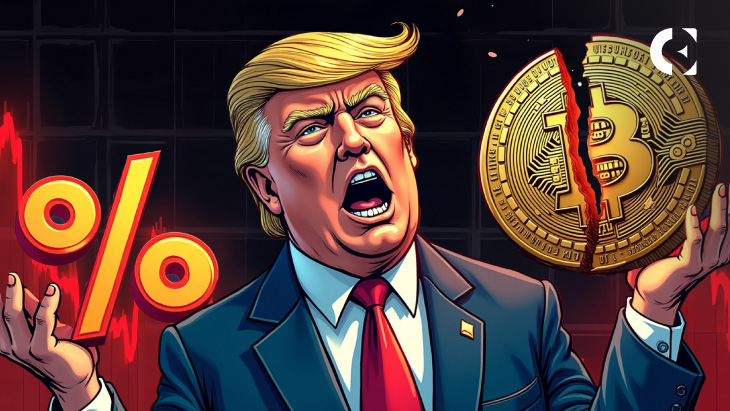- Trump acknowledges consumers paying more due to tariffs, as the Supreme Court questions.
- President established the Strategic Bitcoin Reserve with BTC, ETH, XRP, SOL, and ADA holdings.
- Administration reversed Biden-era actions, dropped SEC lawsuits against exchanges.
President Donald Trump acknowledged on Thursday that U.S. consumers are paying more for goods because of tariffs he has implemented. The statement arrives as the Supreme Court raises doubts about the legality of his tariff policies during ongoing legal proceedings.
Trump has used tariffs as a diplomatic and economic tool since taking office in January 2025. The president previously insisted that foreign nations were funding U.S. coffers through these levies, though economists maintain tariffs are paid by consumers of the goods themselves. During an exchange with journalists in the Oval Office, Trump was asked if he agreed with Chief Justice John Roberts’ assertion that tariffs are taxes paid by Americans.
Broader Policy Framework Supports Crypto
“No, I don’t agree. I think that they might be paying something. But when you take the overall impact, the Americans are gaining tremendously,” Trump stated. The president has set levies on imports from China, Canada, the European Union, and other trading partners worldwide.
Trump warned that a Supreme Court decision stripping his authority to set tariffs would be “devastating” for the country. “I think it’d be devastating for our country, but I also think that we’ll have to develop a ‘game two’ plan,” he said regarding a potential adverse ruling.
The tariff uncertainty arises as Trump has fundamentally shifted U.S. cryptocurrency policy from the Biden administration’s enforcement to a pro-crypto framework. On January 23, 2025, Trump signed an executive order titled “Strengthening American Leadership in Digital Financial Technology.”
On March 6, 2025, Trump established the Strategic Bitcoin Reserve and U.S. Digital Asset Stockpile through an executive order. The reserve includes Bitcoin, Ethereum, XRP, Solana, and Cardano, funded exclusively by assets forfeited through criminal or civil proceedings.
Legislative Achievements Strengthen Regulatory Clarity
Trump signed the GENIUS Act into law on July 18, 2025, and created the first federal regulatory framework for payment stablecoins. The legislation requires stablecoins to be backed one-for-one by U.S. dollars or low-risk assets and establishes licensing requirements for issuers.
The administration reversed Biden-era enforcement actions. On February 27, 2025, the SEC filed to dismiss its lawsuit against Coinbase. On May 29, 2025, the SEC dropped its lawsuit against Binance and its founder, Changpeng Zhao.
Trump appointed Paul Atkins as SEC Chair, who launched “Project Crypto” on July 31, 2025, to modernize securities regulation. Atkins declared that most crypto assets are not securities, fundamentally narrowing the SEC’s jurisdictional claims.
Whether tariff policies will affect crypto market sentiment depends on their impact on global trade flows and risk appetite. Economic uncertainty from trade disputes could drive investors toward alternative assets or reduce speculative capital available for cryptocurrency markets.
Disclaimer: The information presented in this article is for informational and educational purposes only. The article does not constitute financial advice or advice of any kind. Coin Edition is not responsible for any losses incurred as a result of the utilization of content, products, or services mentioned. Readers are advised to exercise caution before taking any action related to the company.







